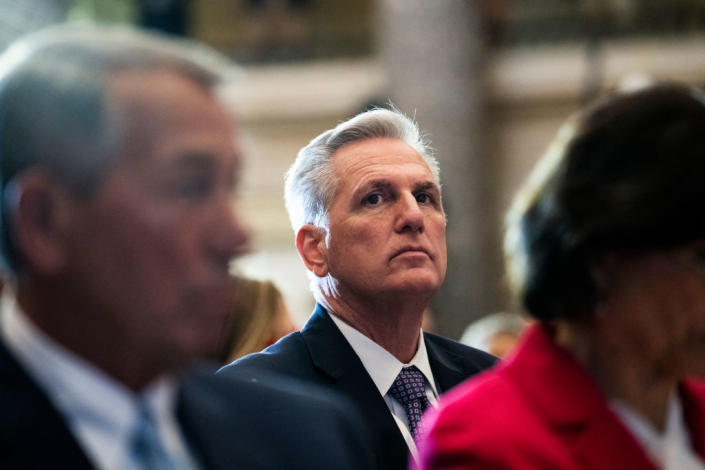HOW MANY OF THESE PIGS ARE GAMER LAWYERS?
“Protect and enrich.” This is a perfect encapsulation of the
Clinton (LAWYERS-2) Foundation and the (LAWYERS-2)
Obama book and television deals. Then there is the Biden
(LAWYERS-3) family corruption, followed closely behind by
similar abuses of power and office by the (LAWYER) Warren
and Sanders families, as Peter Schweizer described in his recent
book “Profiles in Corruption.” These names just scratch the
surface of government corruption (YOU CAN ADD LAWYER KAMALA HARRIS
AND LAWYER CHUCK SCHUMER TO THE PATHEION OF DEMOCRAT BRIBES SUCKING
CORRUPT LAWYER POLITICIANS!). BRIAN C JOONDEPH
Liz Cheney Exits Congress 6 Years Later and Millions of Dollars Richer

Rep. Liz Cheney (R-WY) will vacate her congressional seat on Tuesday after becoming a wealthy woman during her six years of serving Wyoming.
Cheney, who lost her Republican primary by nearly 40 points in August, will depart Congress on January 3 and return home as a defeated 56-year-old never Trumper.
Cheney will not depart Congress empty-handed. During her six years in Congress, she has become very wealthy. Breitbart News reported in August that Cheney’s net worth ballooned from an estimated $7 million when she first took office in 2017 to possibly more than $44 million in 2020. Depending on the specifics of her latest financial disclosure form, Cheney’s net worth could have skyrocketed up to 600 percent in Congress.
According to her 2020 Personal Financial Disclosure form, Cheney declared a net worth between $10,422,023 and $44,140,000, stemming from assets valued between $10,432,024 and $44,155,000. She reported no earned income, gifts, or transactions. She did, however, declare she held three posts, including a trustee position at the University of Wyoming, membership of a holding company, and what appears to be a position in her family’s trust.
Cheney’s wealth and social status are enhanced by her husband, Philip Perry, who is a partner at Latham & Watkins law firm in Washington, DC, which has advised Chinese companies. Since 2017, the year Cheney joined Congress, Perry has maintained “equity ownership” in the firm worth between $1,000,001 and $5,000,000. Breitbart News reported:
Perry’s firm has advised a Chinese Communist Party-linked technology company named TME and Exelon Corporation. The State Department in 2019 dubbed TME a tool of the Chinese government. According to the Wall Street Journal, in 2011, Exelon Corporation agreed to provide consulting and training services to an arm of the state-owned China National Nuclear Corporation (CNNC). The state-owned CNNC’s president and vice president are appointed by the highest administrative position in the Government of China, the Premier of the People’s Republic of China. The CNNC supervises all facets of China’s nuclear programs.
While Perry’s law firm has serviced Chinese clients, Cheney sat on the Armed Services Committee with many powerful subcommittees dedicated to national security. Cheney worked with House Republicans’ on producing a 2020 report on Communist China entitled the “China Task Force Report.” The report states, “[T]he greatest generational challenge we face today is the threat of the Chinese Communist Party (CCP).”
Cheney’s forced exit from Congress does not mean she or her family will depart Washington, DC, and return home to Wyoming. Technically, She represented her home state of Wyoming for six years. But her lack of appearance in the state during the GOP primary become a point of contention for many Cowboy State voters. Instead of campaigning in Wyoming, Cheney appeared to prefer dwelling in the D.C. area, soaking up the spotlight on the January 6 Committee.
Born in Wisconsin, Cheney moved to Wyoming with her family as a young woman. They divided their time between Wyoming and Washington, DC, to suit former Vice President Dick Cheney’s political aspirations. In 1996, Liz Cheney graduated from the University of Chicago’s law school. She then worked in the Bush administration while her father was vice president. In 2014, she ran for the Wyoming State Senate and lost. A few years later, she won Wyoming’s U.S. House of Representatives seat.

Former US Vice President Dick Cheney (C) sits with his daughter US Congresswoman Liz Cheney (R), R-Wyoming, during the opening of the 115th US Congress on Capitol Hill in Washington, DC, January 3, 2017 (JIM WATSON/AFP via Getty Images).
Cheney’s congressional career entailed some successes. In 2019, she was elected the third most powerful House Republican as GOP House Conference chair. She was later displaced by Trump-endorsed Rep. Elise Stefanik (R-NY) by a vote of no confidence in 2021, the same year she accepted a position on the January 6 Committee.
Cheney’s participation on the committee appeared to seal her political fate in Wyoming. Viewed as a partisan witch hunt, the committee failed to sway 89 percent of the public. Moreover, the committee’s final report did not produce any legally binding results. Adding insult to injury, the committee officially withdrew its subpoena on Wednesday for former President Donald Trump to testify before Congress.
As a new political cycle begins Tuesday, Cheney has not definitively stated what her future plans entail. She has said her forward focus is blocking Trump from winning reelection in 2024. But it is unclear how she will do so without the vice chair pulpit or the January 6 Committee. She has floated the idea of potentially running for president in 2024, but critics doubt she will gain enough Democrat votes or Republican support in either primary.
Follow Wendell Husebø on Twitter @WendellHusebø. He is the author of Politics of Slave Morality.
McCarthy Proposes Gutting Office of Congressional Ethics in Bid for Speaker
House Minority Leader Kevin McCarthy, R-Calif. attends a portrait unveiling ceremony for Speaker Nancy Pelosi at the U.S. Capitol on December 14, 2022. Credit - Tom Williams—CQ-Roll Call, Inc via Getty Images
House Minority Leader Kevin McCarthy spent the first two days of the new year trying to shore up GOP support for his bid to be Speaker by releasing a series of proposals aimed at winning over hard-right detractors who stand to torpedo his ascension.
The part of his proposed changes to House rules that drew the most attention was allowing just five House members to call for a vote at any time on ousting the Speaker; that would render McCarthy beholden to the most extreme members of his caucus, should he get on their wrong side. But buried in the text was another provision that could be highly consequential for the new Congress being sworn in on Tuesday: language that would effectively gut the Office of Congressional Ethics (OCE), as the independent panel faces pressure to investigate lawmakers who participated in the Jan. 6 attack on the Capitol.
Most significantly, McCarthy’s proposal would require OCE to hire its staff for the 118th Congress within 30 days of the resolution’s adoption, a requirement that sources familiar with the process tell TIME would make it exceedingly difficult for the office to have the resources it needs to conduct its investigations, given how long it takes to hire candidates for roles in the federal government. The proposal would also block OCE from hiring new employees over the next two years if someone leaves their position, sources say.
“Republicans get to take control of the House, and on their first day in Congress, they are not trying to take a hammer to the OCE—they’re being a little smarter about it—but they’re taking a scalpel to it,” a Hill source familiar with the ethics process tells TIME.
The resolution would also impose eight-year term limits for members of OCE’s eight-member board, which is composed of four Democrats and four Republicans. The move would result in three of the four Democrats being forced to vacate their seats effective immediately. While the new Democratic leader, Rep. Hakeem Jeffries of New York, would be able to appoint replacements, the changes could still significantly slow down the panel’s work and zap it of valuable institutional knowledge.
“This could easily kill the only body that’s investigating ethical issues in Congress,” says Kedric Payne with the Campaign Legal Center. “There’s no investigations in the Senate. And the only investigations that happen in the House of any significance are done by the OCE.”
“This is a very smart way to do it,” adds Payne, a former OCE deputy chief counsel. “Because it looks as though the office still lives, but, in fact, it doesn’t.”
This isn’t the first time Republicans have tried to dismantle the Congress’s independent ethics panel. In 2017, the House Republican Conference took steps to curtail the power of the OCE, but the proposal was opposed by then-Speaker Paul Ryan and even McCarthy.
This time around, circumstances have changed. A handful of ultra-conservative lawmakers, including Reps. Scott Perry of Pennsylvania, Andy Biggs of Arizona, Matt Gaetz of Florida, and Lauren Boebert of Colorado, have vowed to vote against McCarthy for speaker. With the Republicans’ slim majority, the California legislator can only afford four defections.
Some of the defectors also happen to be among the lawmakers who stand to benefit the most from a castrated OCE. Last month, more than 30 former members of Congress of both parties requested the ethics panel to investigate the lawmakers who participated in the Jan. 6, 2021 attempt to overturn the 2020 presidential election, a move that increases the spotlight on OCE and which investigations it chooses to pursue in the new Congress.
The OCE was also expected to investigate George Santos, the Republican Congressman-elect from New York who appears to have fabricated large swaths of his biography, including his employment history, his educational credentials, and even the circumstances of his mother’s death.
On Monday, as details of McCarthy’s proposal drew more attention, the good-government watchdog group Public Citizen called on him and the next Congress to get rid of the provisions that would weaken the OCE, saying in a statement Monday that the panel “has a proven track record of enhancing transparency and enforcement of ethics rules and has gained widespread support among the American public.”
McCarthy did not respond to a request for comment.
The Office of Congressional Ethics was established in 2008 by then Speaker of the House Nancy Pelosi after a wave of Democratic victories in the 2006 midterms and after corruption scandals that sent multiple members of Congress to jail. The panel was intended to be an independent body separate from the House Ethics Committee, which advocates have long criticized as ineffectual and lacking in transparency.
But the two work hand-in-hand. When the OCE finds evidence of misconduct, it sends a report of its findings to the House Ethics Committee, which then chooses whether to censure a member for a violation.
While the OCE lacks the subpoena power of full House committees, it has been effective at probing wrongdoing by lawmakers of both parties. Shortly after its inception, it found that then-Rep. Charlie Rangel, a New York Democrat, improperly accepted trips to Caribbean islands as gifts from a nonprofit group. The entire House later sanctioned Rangel for violating 11 House ethics rules. In 2017, it was the first entity to investigate then-Rep. Chris Collins, a New York Republican, of insider trading. He later pleaded guilty to insider trading and lying to federal investigators. (Trump pardoned Collins in 2020.)
The OCE was poised to have a full plate over the next two years, with a heavy emphasis on the members who participated in the Jan. 6 attack. It’s a scenario that leads Congressional watchdogs to suspect that McCarthy is offering to debilitate the agency of resources and institutional knowledge to shield his members from scrutiny in order to hold onto power.
“Today’s Republican Party is rife with ethical transgressions,” says Craig Holman, a government affairs lobbyist with Public Citizen. “And it is now trying to make it much harder to hold members of Congress accountable to the standards of decency we expect.”

No comments:
Post a Comment